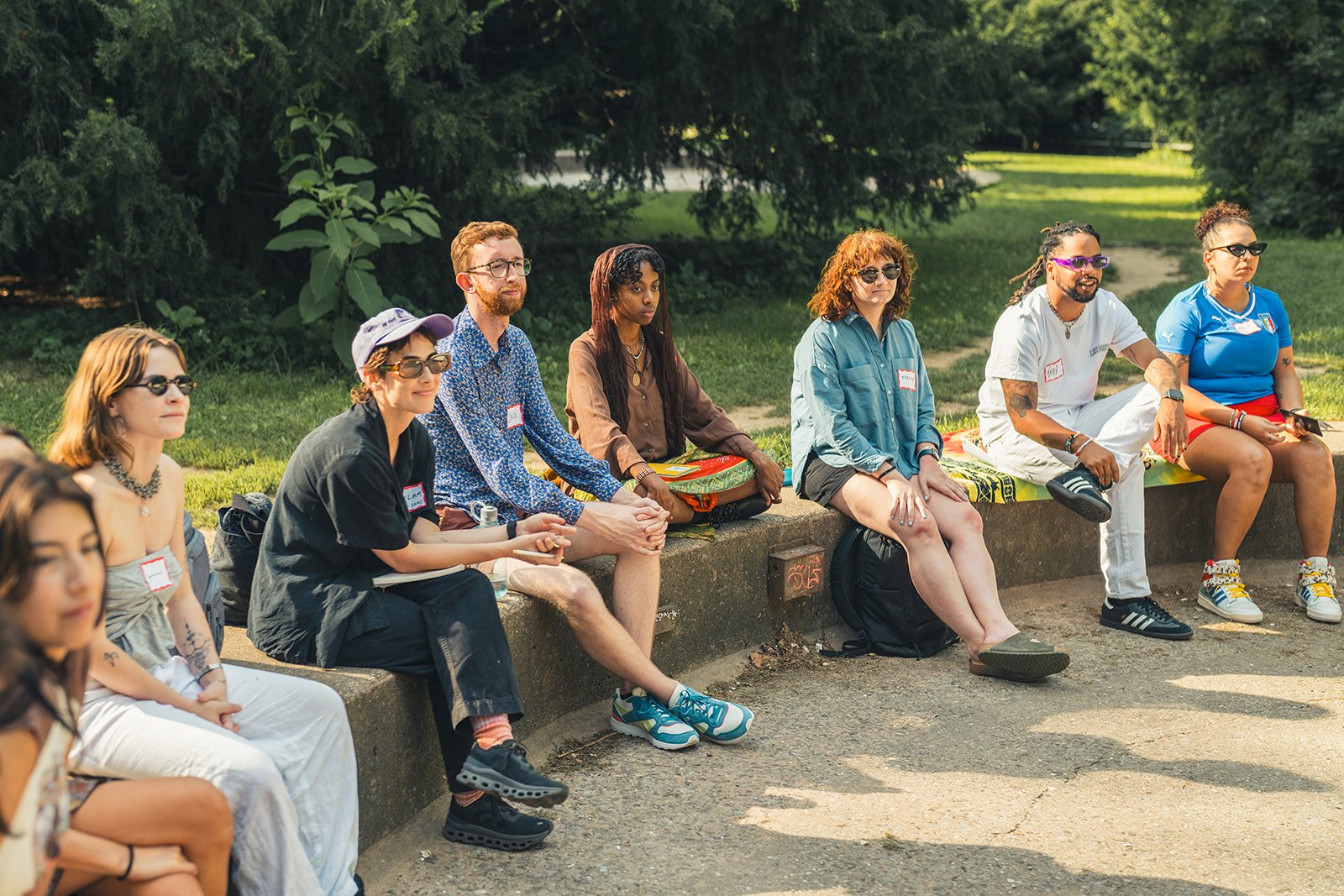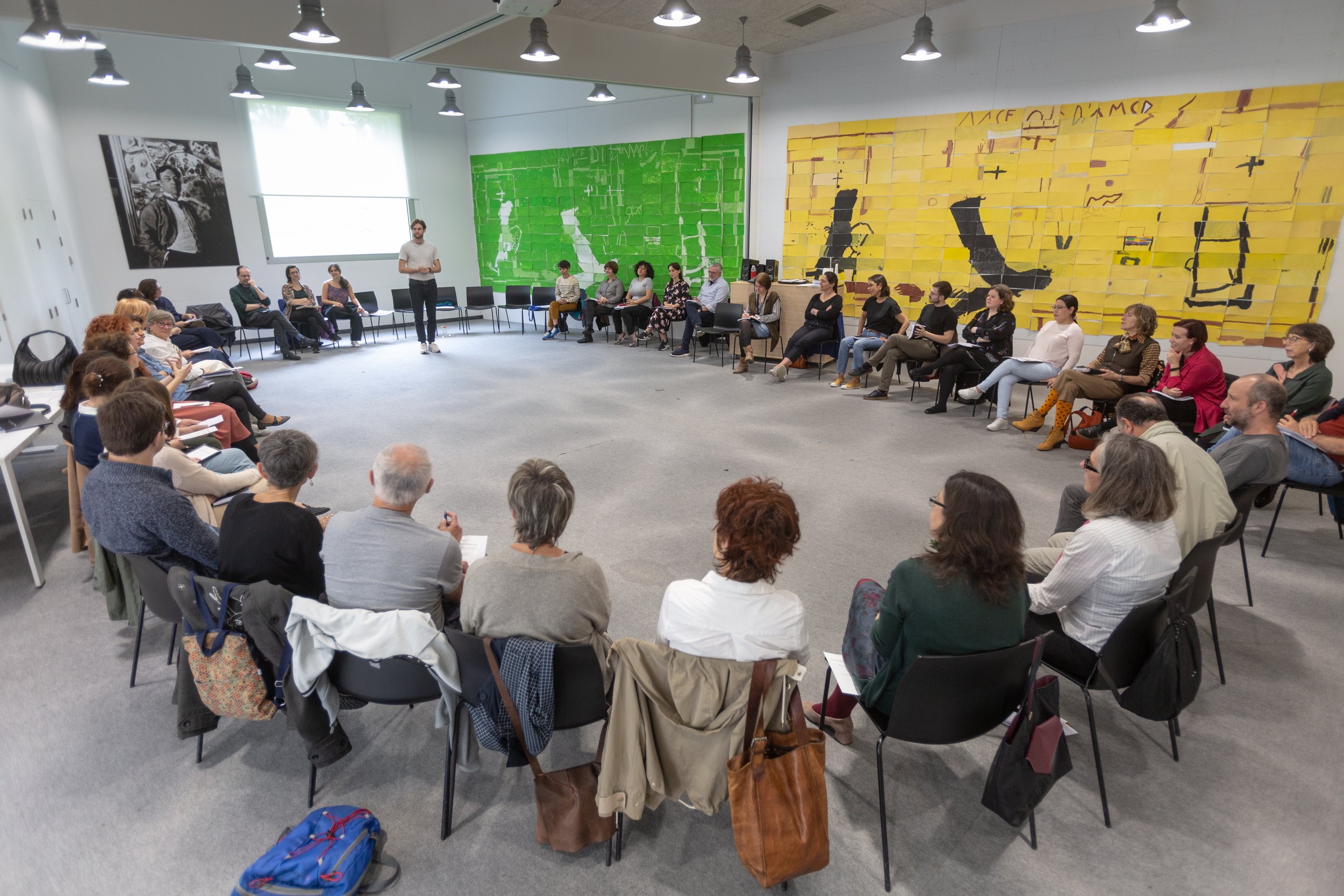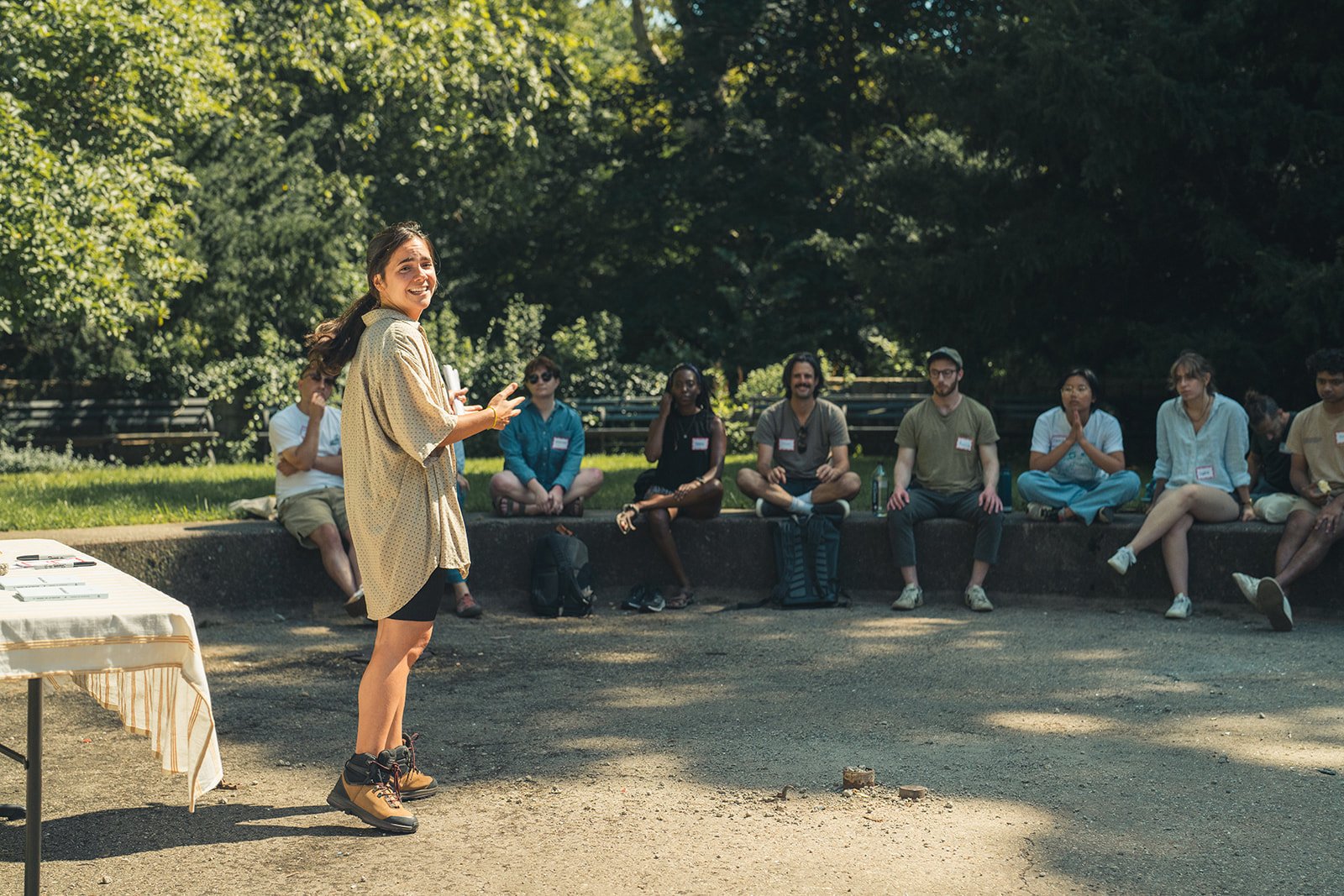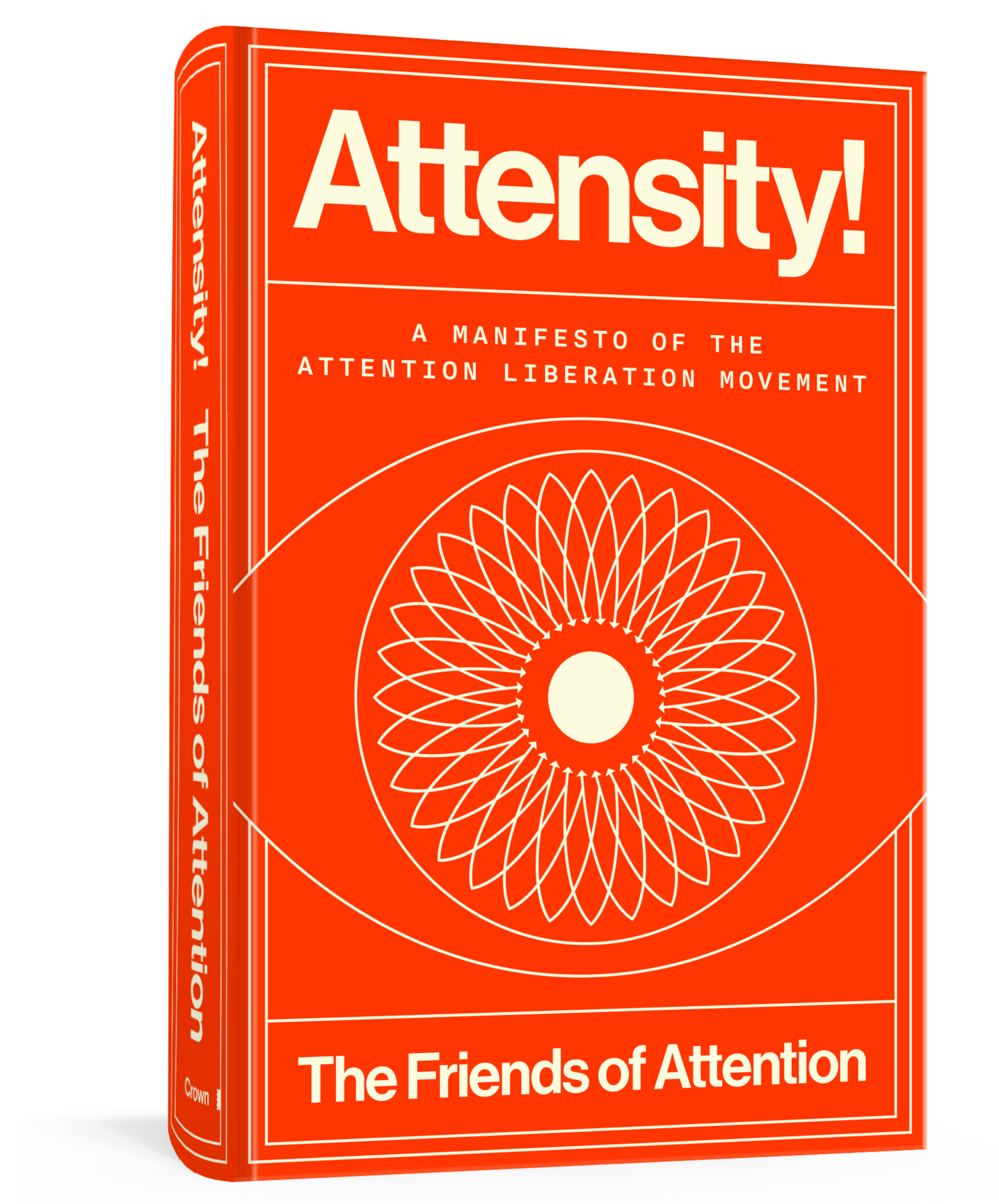“A stirring battle cry on behalf of our shared humanity against the forces that seek to diminish and degrade it. Downright invigorating. Just what the moment calls for.”
—Chris Hayes, author of The Sirens’ Call
“Attensity! is asking vital questions about the re-wiring of our lives in a time of growing crisis.”
—Hanif Abdurraqib, author of There’s Always This Year
“A thrilling declaration of independence from tech’s tyranny over our human spirits. We feel the human and humane surge to renewed life through its call.”
—Danielle Allen, author of Our Declaration
“An extraordinary book that changes how you see the world. Every chapter has revelations that will make you stop and reconsider how you are living your life.”
—Tim Wu, author of The Age of Extraction
STUDY WITH US!
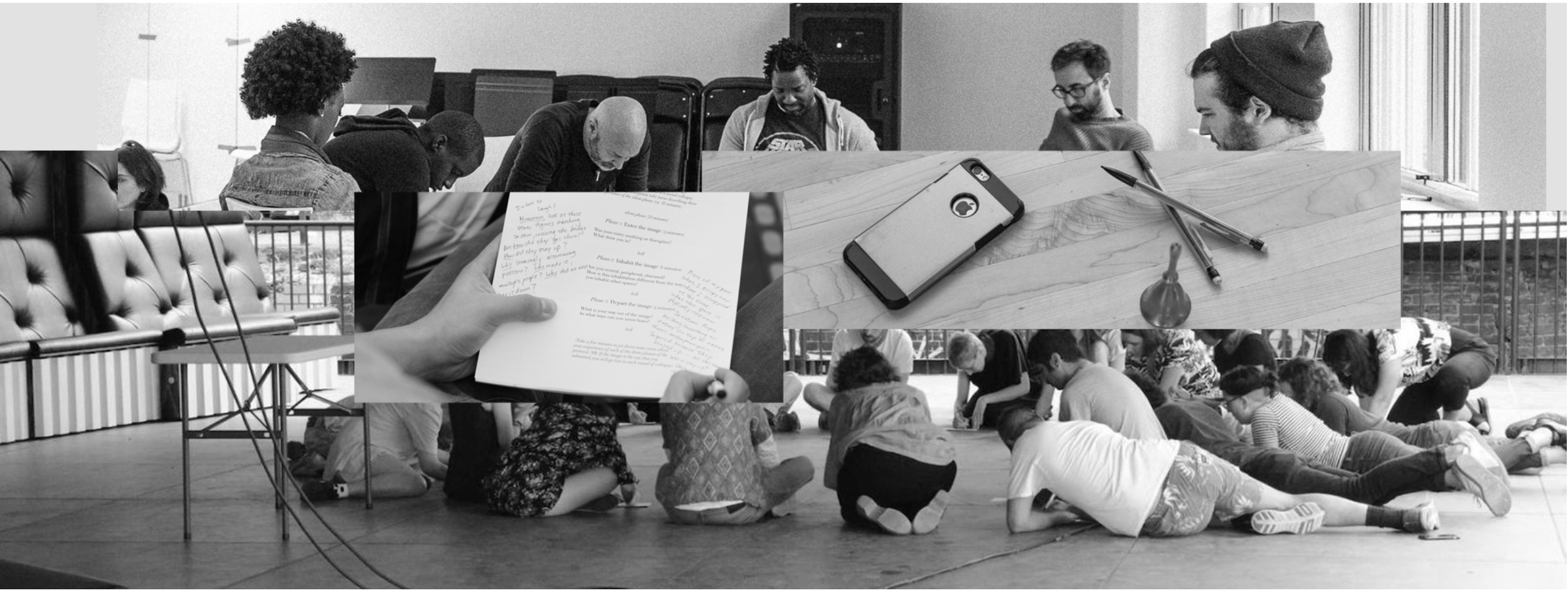
We are a non-profit organization dedicated to ATTENTION ACTIVISM: the movement to push back against the fracking of human attention by coercive digital technologies. We pursue change in three ways…
through STUDY —
meaning collaborative inquiry that activates authentic, shared experiences of attention conducive to flourishing; this is consciousness-raising through pedagogy
through ORGANIZING —
meaning coalition-building across relevant communities who see the need to push back against the despoiling (commodification, instrumentalization, exploitation) of human attention.
through SANCTUARY —
meaning the cultivation of spaces and times (physical, virtual, fixed, fleeting) that provide shelter and nourishment for attentional capacities.
